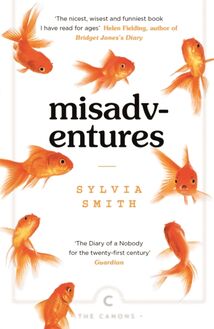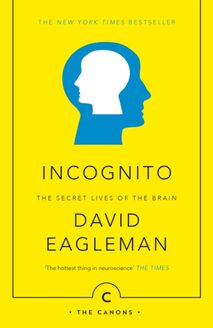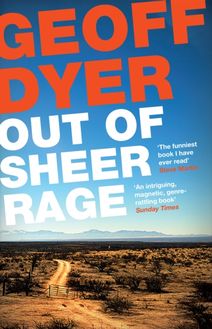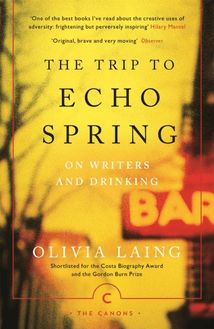-
 Univers
Univers
-
 Ebooks
Ebooks
-
 Livres audio
Livres audio
-
 Presse
Presse
-
 Podcasts
Podcasts
-
 BD
BD
-
 Documents
Documents
-
- Cours
- Révisions
- Ressources pédagogiques
- Sciences de l’éducation
- Manuels scolaires
- Langues
- Travaux de classe
- Annales de BEP
- Etudes supérieures
- Maternelle et primaire
- Fiches de lecture
- Orientation scolaire
- Méthodologie
- Corrigés de devoir
- Annales d’examens et concours
- Annales du bac
- Annales du brevet
- Rapports de stage
La lecture à portée de main
Vous pourrez modifier la taille du texte de cet ouvrage
Découvre YouScribe en t'inscrivant gratuitement
Je m'inscrisDécouvre YouScribe en t'inscrivant gratuitement
Je m'inscrisEn savoir plus
Vous pourrez modifier la taille du texte de cet ouvrage
En savoir plus

Description
Informations
| Publié par | Canongate Books |
| Date de parution | 09 juillet 2006 |
| Nombre de lectures | 0 |
| EAN13 | 9781847678492 |
| Langue | English |
| Poids de l'ouvrage | 2 Mo |
Informations légales : prix de location à la page 0,0360€. Cette information est donnée uniquement à titre indicatif conformément à la législation en vigueur.
Extrait
Alessandro Baricco was born in Turin in 1958. He is the author of thirteen novels, as well as a number of essay and short story collections, a modern rendition of The Iliad and a theatrical monologue. He has won the Prix Médicis Étranger in France and the Selezione Campiello, Viareggio and Palazzo al Bosco prizes in Italy. Ann Goldstein is a frequent translator from the Italian. She has translated works by, among others, Pier Paolo Pasolini, Alessandro Baricco, Elena Ferrante, Erri De Luca and Roberto Calasso.
Selected works in translation by Alessandro Baricco
The Young Bride Three Times at Dawn Mr Gwyn Emmaus Without Blood An Iliad City Ocean Sea Lands of Glass
Copyright
Canons edition published in Great Britain in 2019 by Canongate Books
First published in Great Britain in 2006 by Canongate Books Ltd, 14 High Street, Edinburgh EH1 1TE
This digital edition first published in 2009 by Canongate Books
canongate.co.uk
Copyright © Alessandro Baricco, 1997 English translation copyright © Alessandro Baricco, 2006
The moral rights of the author have been asserted
The publisher gratefully acknowledges subsidy from the Scottish Arts Council towards the publication of this volume
This English translation was supported by the Italian Cultural Institute, Edinburgh
British Library Cataloguing- in-Publication Data A catalogue record for this book is available on request from the British Library
ISBN 978 1 78689 642 1 eISBN 978 1 84767 849 2
Contents
Chapter 1 Chapter 2 Chapter 3 Chapter 4 Chapter 5 Chapter 6 Chapter 7 Chapter 8 Chapter 9 Chapter 10 Chapter 11 Chapter 12 Chapter 13 Chapter 14 Chapter 15 Chapter 16 Chapter 17 Chapter 18 Chapter 19 Chapter 20 Chapter 21 Chapter 22 Chapter 23 Chapter 24 Chapter 25 Chapter 26 Chapter 27 Chapter 28 Chapter 29 Chapter 30 Chapter 31 Chapter 32 Chapter 33 Chapter 34 Chapter 35 Chapter 36 Chapter 37 Chapter 38 Chapter 39 Chapter 40 Chapter 41 Chapter 42 Chapter 43 Chapter 44 Chapter 45 Chapter 46 Chapter 47 Chapter 48 Chapter 49 Chapter 50 Chapter 51 Chapter 52 Chapter 53 Chapter 54 Chapter 55 Chapter 56 Chapter 57 Chapter 58 Chapter 59 Chapter 60 Chapter 61 Chapter 62 Chapter 63 Chapter 64 Chapter 65
1.
A LTHOUGH his father had imagined for him a brilliant future in the army, Hervé Joncour ended up earning his living in an unusual profession that, with singular irony, had a feature so sweet as to betray a vaguely feminine intonation.
For a living, Hervé Joncour bought and sold silkworms.
It was 1861. Flaubert was writing Salammbô , electric light was still a hypothesis and Abraham Lincoln, on the other side of the ocean, was fighting a war whose end he would not see.
Hervé Joncour was thirty-two years old.
He bought and sold.
Silkworms.
2.
T O be precise, Hervé Joncour bought and sold silkworms when the silkworms consisted of tiny eggs, yellow or grey in colour, motionless and apparently dead. Merely in the palm of your hand you could hold thousands of them.
‘It’s what is meant by having a fortune in your hand.’
In early May the eggs opened, freeing a worm that, after thirty days of frantic feeding on mulberry leaves, shut itself up again, in a cocoon, and then, two weeks later, escaped for good, leaving behind a patrimony that in silk came to a thousand yards of rough thread and in money a substantial number of French francs: assuming that everything happened according to the rules and, as in the case of Hervé Joncour, in a region of southern France.
Lavilledieu was the name of the town where Hervé Joncour lived.
Hélène that of his wife.
They had no children.
3.
T O avoid the devastation from the epidemics that increasingly afflicted the European stock, Hervé Joncour tried to acquire silkworm eggs beyond the Mediterranean, in Syria and Egypt. There lay the most exquisitely adventurous aspect of his work. Every year, in early January, he left. He traversed sixteen hundred miles of sea and eight hundred kilometres of land. He chose the eggs, negotiated the price, made the purchase. Then he turned around, traversed eight hundred kilo- metres of land and sixteen hundred miles of sea, and arrived in Lavilledieu, usually on the first Sunday in April, usually in time for High Mass.
He worked for two more weeks, packing the eggs and selling them.
For the rest of the year he relaxed.
4.
‘W HAT’S Africa like?’ they asked.
‘Weary.’
He had a big house outside the town and a small workshop in the centre, just opposite the abandoned house of Jean Berbeck.
Jean Berbeck decided one day that he would never speak again. He kept his promise. His wife and two daughters left him. He died. No one wanted his house, so now it was abandoned.
Buying and selling silkworms, Hervé Joncour earned a sufficient amount every year to ensure for him and his wife those comforts which in the countryside people tend to consider luxuries. He took an unassuming pleasure in his possessions, and the likely prospect of becoming truly wealthy left him completely indifferent. He was, besides, one of those men who like to witness their own life, considering any ambition to live it inappropriate.
It should be noted that these men observe their fate the way most men are accustomed to observe a rainy day.
5.
I F he had been asked, Hervé Joncour would have said that his life would continue like that forever. In the early Sixties, however, the pebrine epidemic that by now had rendered the eggs from the European breeders useless spread beyond the sea, reaching Africa and even, some said, India. In 1861, Hervé Joncour returned from his usual journey with a supply of eggs that two months later turned out to be almost entirely infected. For Lavilledieu, as for many other cities whose wealth was based on the production of silk, that year seemed to represent the beginning of the end. Science appeared incapable of understanding the causes of the epidemic. And the whole world, as far as the farthest regions, seemed a prisoner of that inexplicable fate.
‘ Almost the whole world,’ Baldabiou said softly. ‘Almost’, pouring a little water into his Pernod.
6.
B ALDABIOU was the man who, twenty years earlier, had come to town, headed straight for the mayor’s office, entered without being announced, placed on the desk a silk scarf the colour of sunset, and asked him
‘Do you know what this is?’
‘Women’s stuff.’
‘Wrong. Men’s stuff: money.’
The mayor had him thrown out. He built a silk mill, down at the river, a barn for raising silkworms, in the shelter of the woods, and a little church dedicated to St Agnes, at the intersection of the road to Vivier. Baldabiou hired thirty workers, brought a mysterious wooden machine from Italy, all wheels and gears, and said nothing more for seven months. Then he went back to the mayor and placed on his desk, in an orderly fashion, thirty thousand francs in large bills.
‘Do you know what this is?’
‘Money.’
‘Wrong. It’s the proof that you are an idiot.’
Then he picked up the bills, put them in his wallet, and turned to leave.
The mayor stopped him.
‘What the devil should I do?’
‘Nothing: and you will be the mayor of a wealthy town.’
Five years later Lavilledieu had seven silk mills and had become one of the principal centres in Europe for breeding silkworms and making silk. It wasn’t all Baldabiou’s property. Other prominent men and landowners in the area had followed him in that curious entrepreneurial adventure. To each one, Baldabiou had revealed, without hesitation, the secrets of the work. This amused him much more than making piles of money. Teaching. And having secrets to tell. He was a man made like that.
7.
B ALDABIOU was also the man who, eight years earlier, had changed Hervé Joncour’s life. It was when the epidemics had first begun to hurt the European production of silkworm eggs. Without getting upset, Baldabiou had studied the situation and had reached the conclusion that the problem would not be solved; it would be evaded. He had an idea; he lacked the right man. He realised he had found him when he saw Hervé Joncour passing by the café Verdun, elegant in the uniform of a second lieutenant of the infantry and with the proud bearing of a soldier on leave. He was twenty-four, at the time. Baldabiou invited him to his house, spread open before him an atlas full of exotic names, and said to him
‘Congratulations. You’ve finally found a serious job, boy.’
Hervé Joncour listened to a long story about silkworms, eggs, pyramids and travel by ship. Then he said
‘I can’t.’
‘Why not?’
‘In two days my leave is over – I have to return to Paris.’
‘Military career?’
‘Yes. It’s what my father wanted.’
‘No problem.’
He seized Hervé Joncour and led him to his father.
‘You know who this is?’ he asked, after entering the office unannounced.
‘My son.’
‘Look harder.’
The mayor sank back in his leather chair, beginning to sweat.
‘My son Hervé, who in two days will return to Paris, where a brilliant career awaits him in our army, God and St Agnes willing.’
‘Exactly. Only, God is busy elsewhere and St Agnes detests soldiers.’
A month later Hervé Joncour left for Egypt. He travelled on a ship called the Adel . In the cabins you could smell the odour of cooking, there was an Englishman who said he had fought at Waterloo, on the evening of the third day they saw dolphins sparkling on the horizon like drunken waves, at roulette it was always the sixteen.
He returned six months later – the first Sunday in April, in time for High Mass – with thousands of eggs packed in cotton wool in two big wooden boxes. He had a lot of things to tell. But what Baldabiou said to him when they were alone was
‘Tell me about the dolphins.’
‘The dolphins?’
‘About when you saw them.’
That was Baldabiou.
No one knew how old he was.
-
 Univers
Univers
-
 Ebooks
Ebooks
-
 Livres audio
Livres audio
-
 Presse
Presse
-
 Podcasts
Podcasts
-
 BD
BD
-
 Documents
Documents
-
Jeunesse
-
Littérature
-
Ressources professionnelles
-
Santé et bien-être
-
Savoirs
-
Education
-
Loisirs et hobbies
-
Art, musique et cinéma
-
Actualité et débat de société
-
Jeunesse
-
Littérature
-
Ressources professionnelles
-
Santé et bien-être
-
Savoirs
-
Education
-
Loisirs et hobbies
-
Art, musique et cinéma
-
Actualité et débat de société
-
Actualités
-
Lifestyle
-
Presse jeunesse
-
Presse professionnelle
-
Pratique
-
Presse sportive
-
Presse internationale
-
Culture & Médias
-
Action et Aventures
-
Science-fiction et Fantasy
-
Société
-
Jeunesse
-
Littérature
-
Ressources professionnelles
-
Santé et bien-être
-
Savoirs
-
Education
-
Loisirs et hobbies
-
Art, musique et cinéma
-
Actualité et débat de société
- Cours
- Révisions
- Ressources pédagogiques
- Sciences de l’éducation
- Manuels scolaires
- Langues
- Travaux de classe
- Annales de BEP
- Etudes supérieures
- Maternelle et primaire
- Fiches de lecture
- Orientation scolaire
- Méthodologie
- Corrigés de devoir
- Annales d’examens et concours
- Annales du bac
- Annales du brevet
- Rapports de stage




















